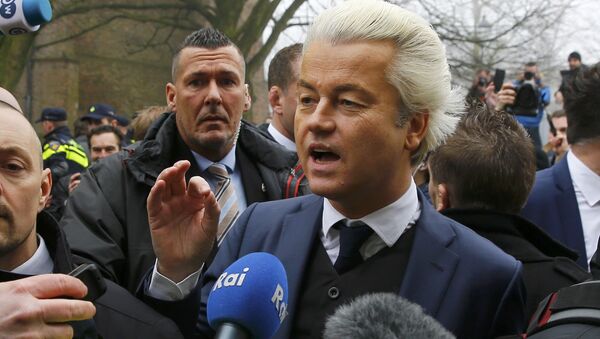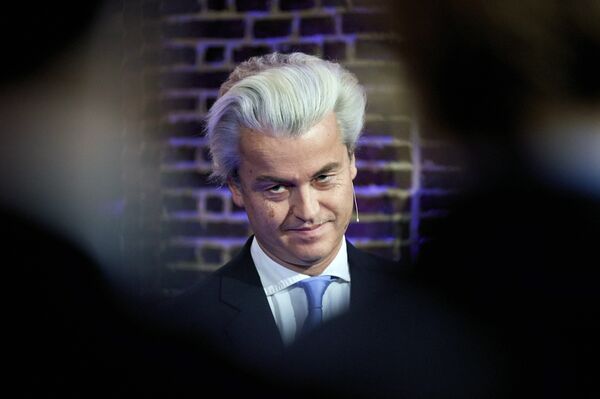The move follows formal reassurances offered to the Dutch government by the EU Council in December that the agreement does not imply eventual membership or a pledge of military protection for Ukraine, or freedom of movement within the EU for Ukrainians.
In response, both Parliament Houses agreed to ratify the EU-Ukraine treaty, which was signed by every other EU country in March 2014 in the wake of the coup that removed democratically-elected President Viktor Yanukovych from power.
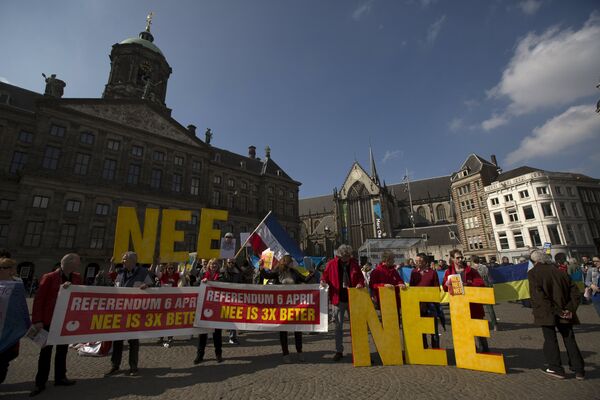
Such assurances were offered orally prior to the April 4 referendum on the agreement in the Netherlands, but their veracity was questioned by opposition politicians and the media, and the proposals were duly rejected overwhelmingly by voters, with 64 percent voting "Nee."
Despite the result, ratification remained on the agendas of the EU and Dutch government, resulting in the question being put to a parliamentary vote.
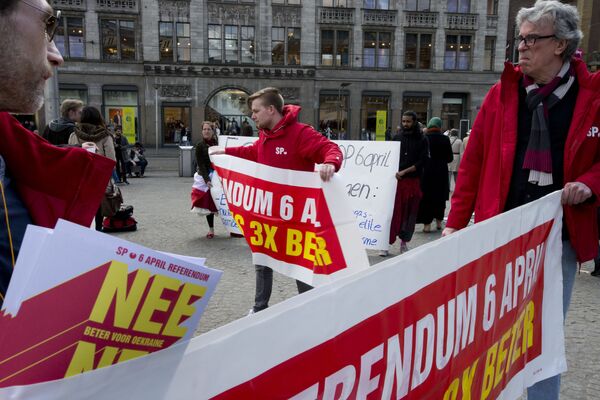
In a February 21 parliamentary debate, Dutch Labour MP Marit Maij said the "legally binding" declaration clearly smoothed objections "No" voters had, and his sentiments were backed by the VVD, Democrats 66 and GroenLinks. While public and parliamentary opposition to ratification is sizable, together the parties constitute a majority, meaning it's highly likely the bill will pass.
The PVV has made significant political capital out of the government's determination to ratify the agreement — the issue strongly chimes with the party's core anti-EU, anti-establishment messaging. Unsurprisingly, the PVV led opposition to the bill in parliament, with Harm Beertema MP saying the views of "2.5 million voters" had not been respected, and in doing so the government had "seriously undermined trust in politics."
He also demanded a guarantee from Prime Minister Mark Rutte that he would veto any move to incorporate Ukraine into the European Union as a Member State in future, which Rutte refused.
🇳🇱 #Netherlands | Peil.nl poll: GreenLeft (@groenlinks) largest party among citizens below 35. Freedom Party #PVV ahead over 35#tk2017 pic.twitter.com/bzK0M3oTkT
— Electograph (@Electograph) February 19, 2017
The impending endorsement of the agreement is a potential goldmine for the PVV, and comes at a time when the PVV has consistent leads over the ruling VVD in the polls.
Coalition or No Coalition?
With the Dutch General Election scheduled for March 15, could this move ensure the PVV becomes the largest parliamentary party, and forms a government? Tim de Beer, an opinion expert at polling firm Kantar NIPO, isn't so sure.
"The vote will for sure be used by the PVV, and the timing is terrible for the government. However, I don't think it offers the party a huge opportunity. There are many other issues the public is far more concerned about — the commotion has largely died down on the Ukraine agreement now," Mr. de Beer told Sputnik.
What's more, the likelihood of the PVV entering government is low, Mr. de Beer believes. While Peil and TNS NIPO gave the PVV modest leads in their polls of February 19 and 20 respectively (3 seats, 4 seats), many parties have ruled out power sharing with Wilders' bunch, believing he has gone too far. If these parties stick to their promise on this point, it will effectively ensure the PVV won't govern.
"The VVD in particular have made clear they won't have the PVV in any coalition they're part of, and the way polls are looking now, they'll be the biggest or second biggest party. Without them, it's difficult to envisage how Wilders could put together a coalition with the 76 seats needed to govern as a majority administration. Many parties will only have seat totals in single digits, but the Liberals would find it much easier to put together a coalition with them than the PVV — I predict the next Dutch government will consist of the VVD and Democrats 66, Christian Democratic Appeal, along with either GroenLinks or the Labour party," Mr. de Beer added.
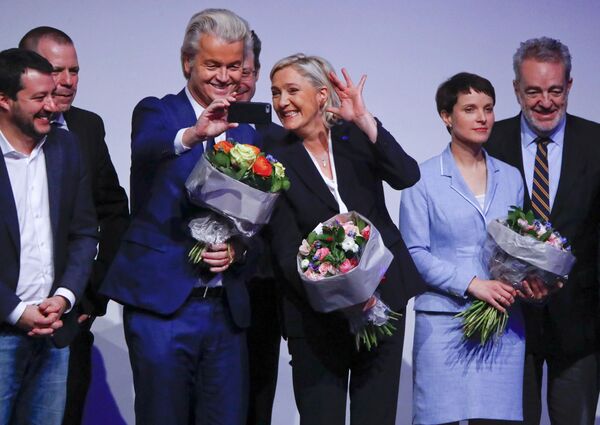
Nonetheless, even if the PVV don't make it into government, Mr. de Beer is certain the party isn't going anywhere.
"Opposition to immigration and globalization, and anti-EU sentiment, will remain in the Netherlands whatever happens. The VVD has even integrated some of the PVV's stances into their own proposition. It's taken over ten years for the party to reach this point — they're not going to vanish if they don't make it into government. On the other hand, the many smaller parties that have copied Wilders' policies and rhetoric may disappear if they don't make headway," Mr. de Beer concluded.

